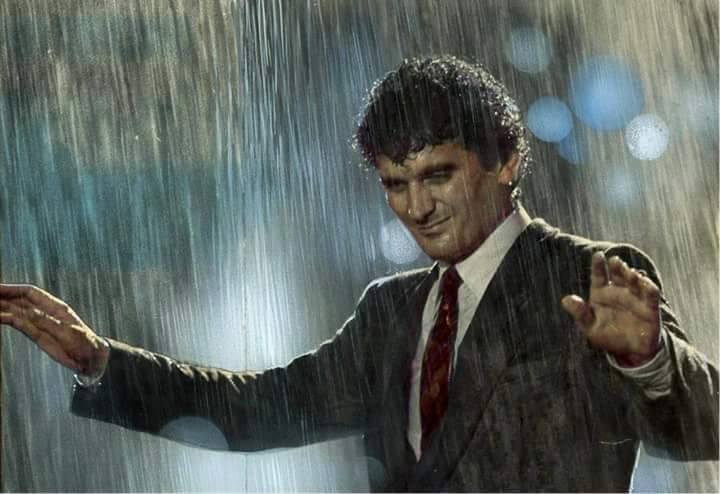Sorry for the delay: coffee in the second great film by the great Massimo Troisi
Article written by Michele Sergio and published in Il Roma of 08 April 2018
Shy, introvert and embarrassed, proud, proud and strong, dedicated to his (and our) dialect, icon of the young southern of the late ‘900, between insecurities and moral principles, cynicism and generosity, Troisi is the best representation of Naples and Naples recent years, the historical contradiction between tradition and change, between important legacies and new languages, new customs. It remains forever in our hearts in spite of the now 25 long years already passed since its premature death. Coffee, an element of Neapolitan tradition par excellence, is constantly present in the Troisian work, it is often the silent character, the perfect accompaniment of the scene, the discreet background of dialogues.
In the 1983 film, the second given to us by Massimo, Sorry for the delay – a highly appreciated work by critics and box office where the actor-director’s hand is decisive and decisive, between fixed and prolonged shots, brilliant, dialogues – Vincenzo (Troisi) and Tonino (Lello Arena) staged the relationship difficulties of two “normal” boys with women, more and more emancipated, confident, master of their present and eager for a future as protagonists, in life and in the relationship of the couple. The story between Vincenzo and Anna (a splendid Giuliana De Sio), in particular, discounts the inability of the male to adapt and face the most advanced personal, psychological, relational and affective maturity of the female, between ups and downs, complicity and misunderstanding .
Between a coffee and another! How not to remember a cult passage of the film, where Massimo-Vincenzo works socio-psychological reflections on the way to drink coffee, litmus test of the existential condition of the individual. The scene: after having made love with Anna, Vincenzo wants a good coffee and goes to the kitchen of the neighbor (an elderly professor, single and often absent from home, for the joy of Vincenzo who, in possession of the keys of the apartment , he uses it – with obsessive attention, care and prudence – for his immigrants amorous encounters with Anna) where – tragedy – only one moka is recovered from a cup. Hence the observation of the great Massimo: the smallest machine, he says, “is the maximum of solitude”: not only live alone (referring to the mature landlord), but you also preclude the possibility to receive views, to offer a coffee to a possible guest. Drinking coffee is the expression of sociality for the Neapolitan, an act and pleasure to be shared necessarily, minimum and maximum action of the social animal (which is the Neapolitan). In short, it is not possible for Vincenzo to dispose of a single moka coffee from a cup in the home, to have a relational problem, to exclude the possibility of hosting people, to offer them the usual, cordial and obligatory coffee! Troisi takes up the ancient Neapolitan lesson in terms of coffee: drinking it is social and socializing moment, the best way to wait for the visit, sharing, duty of the good guest. And then we take the lesson of Troisi: at home at least three cups (even if you live alone). Good coffee to everyone.




Comments are closed.